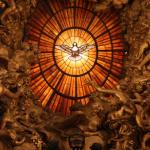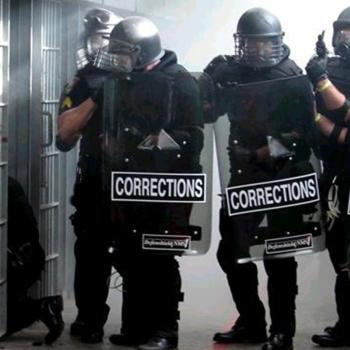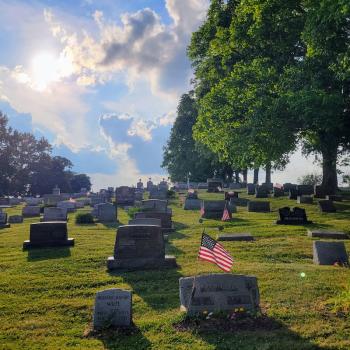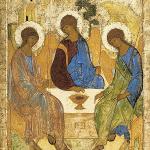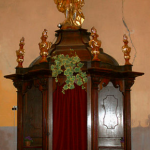January 18 to 25 is the annual international Week of Prayer for Christian Unity. Christians of all sects gather together in prayer across doctrinal differences to remember Jesus’s prayer in John 17:21 “that they may all be one… so that the world may believe.” It is an opportunity for me to reflect on the tragedies caused by a divided Church, and the meaning of being one in the Lord.
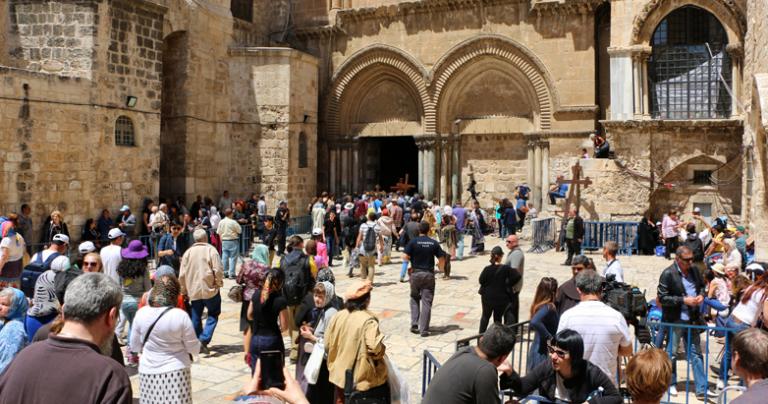
Failing to Recognize the Gifts of One Spirit: Source of Division
The second reading in the Catholic Sunday liturgy this week quotes I Corinthians 12:4-7:
There are different kinds of spiritual gifts but the same Spirit;
there are different forms of service but the same Lord;
there are different workings but the same God who produces all of them in everyone.
To each individual the manifestation of the Spirit is given for some benefit.
It is well worth reading all of I Corinthians 12 and its masterful segue into the famous treatise on love in I Corinthians 13. Pope Francis reflected on this verse in an ecumenical vesper service on Friday, marking the beginning of the special week. “Just as divisions in society grow when wealth is not shared, divisions within Christianity grow when the richness of gifts God has given to one Christian church or community are not recognised and shared, Pope Francis said,” according to the Catholic Herald U.K.
The Herald continues:
“It is easy to think that the spiritual grace granted us is our property, something to which we are due, our property,” the Pope said. Or one group of Christians can be so focused on the gifts they have received from God that they are blind to the gifts God has given others.
“It is a grave sin,” he said, “to belittle or despise the gifts that the Lord has given our brothers and sisters, and to think that God somehow holds them in less esteem.”
God’s grace, the Pope said, must never “become a source of pride, injustice and division.”
The path to Christian unity, the oneness that Jesus prayed his disciples would have, begins with humbly recognising that “the blessings we have received are not ours by right, but have come to us as a gift; they were given to be shared with others,” he said.
My thoughts slip easily from these words to others that I transcribed just a few hours earlier. These words were spoken recently by Fr. Bernard Pottier, SJ, answering the question as to why women deacons disappeared from the Catholic Church after existing for over a millennium:
I think that the disappearance of women deacons is the result of many trends, the confluence of many reasons. And for me, yes, the schism of the East and the West is a reason.
[From earlier in the discussion] “In 1054, West and East Churches separated, the big schism of the Orient and the Occident. For me, that was very important because the Western Church began to think by its own, without the mystical spirituality of the East, thinking that rationality, and the law, and legalistic thought was more important. And we have a series of important [undecipherable] laws, but also sacramental and theological issues, with, for example, the big Summa of Thomas Aquinas. Of course, there are very beautiful products of the Western Church, but on the other side, we have lost a little bit of [the sense of] what is the Sacrament—what is the spirituality, the grace, of the Sacrament? The West wanted to do everything clear and everything simple. [Gesturing in the shape of a box with his hands.] So the sacrament of ordination is very simple.
And another is that, at that time [the] Western [society] was in a struggle between Church and Kings and Emperor, and so on… So who is more powerful? The Church, or the Emperor or the King? So I think the Church wanted hierarchy [to be] very strong, very organized, very male. And it was a sort of challenge of the Church to be at the level of the Emperor, of the King, and so on. And to have a hierarchy that is mostly male, that is a sign that they are stronger, no? And within the Church, that struggle, that balance, was reflected with precisely the clergy [being] only male, only men. And also the clergy against the lay people, the families, the lords, the properties, and so on. So I think that’s a second factor.
And a third factor is the series of steps to become a priest. So women were never engaged in the series of steps to become a priest. There were deacons [before the Gregorian reforms]—it was a state of life. [But] from the moment you say the diaconate has no substance, that the service like Christ is a servant, that is not important, that the aim is to be a priest, to be the master of the game, that step disappeared with its [constancy]. And reflecting that on the male side, it [the diaconate as a state of life] disappeared completely because it was not [seen as] that serious.”
These words of Fr. Pottier cut me to the quick. It is not just, or even primarily, about whether women might be deacons again, or what exactly that would mean. What he described is three conditions absolutely fatal to the mission of the Church, to be the grace-giving presence of Christ crucified and resurrected in the world:
- Abandoning mystical spirituality for a myopic religious legalism.
- Seeking worldly power through the institutions and titles of the Church, in competition with the secular authority of the laity.
- Minimizing the importance of service—of in persona Christi being the image of the suffering servant—and pivoting from ministry to authority as the purpose of ordination.
Seeking a Superior Sect?
I’ve been asked why I stay Catholic when I frequently critique the choices and emphases of the Church’s leadership. It is not as if laws and governance have no purpose in the Church towards building up the Body of Christ. The head is needed to give order, coordination, and recognition of disease among the members of the body. But the person is much more than their cerebral capacities. The most brilliant of organized thoughts are but straw if they are not accompanied by communication to others, by cooking and eating, building shelter, caring for the sick, traveling, dancing, loving touch, and more. How much dynamism and joy we lose when the other members of the body are treated as little more than a support system for the head!
It isn’t as if the Eastern Church has fared so much better this past millennium. Their entanglement with secular power and national pride is even deeper than in the West. The necessary disentanglement of spiritual authority and governmental power that has been going on for centuries in the West has barely even begun in the East. And Eastern ascetical and aesthetic practices often overwhelm the mysteries they are supposed to serve just as easily as Western legalism can do the same. When Christian clerics stand in rivalry with one another or with the people whom they are commissioned to serve, the whole body suffers.
And then there is the second schism of the West, the Protestant Reformation. My assessment is that it began as an earnest call to conversion from certain abuses and blind spots of the Catholic Church, but quickly slipped into an anorexic theology of the incarnated presence of Christ in the Sacraments and the Communion of Saints. While the Protestant democratized recognition of the gifts of the Spirit among all the members of the Church is an important challenge to the clericalism of the Catholics and Orthodox, faith in sola Scriptura is another form of disembodied faith, lacking roots in time and human flesh. Yet again, I struggle to find any church that is fully incarnational.
I have always been tempted by the longing for “original Christianity,” before hierarchy was calcified and the gifts of the Holy Spirit among the laity marginalized, before the Church entered into dubious marriage with the power of the King or State, when believers held such clarity about belief in their baptism that they were willing to die to proclaim it, though theological explanation of this grace according to Greek philosophical categories was hardly even attempted, much less considered definitive. It is the claiming of power and distinction that causes division and breaks Christian unity, is it not? It was seeking the “original Church” that brought me from Calvinism to Catholicism as a young adult, and yet alienates me from much of what I see in Catholic churches and culture today.
But then I read the Epistles and realize that conflicts of power and distinction of roles have dogged the Church from the very beginning. Though I struggle with wondering why, my omniscient and omnipotent Lord chose to build the Church that would be His presence in the world after the Ascension on a foundation of weak, contentious, sinful people. None of us should think ourselves above association with Peter, who was rebuked as speaking for Satan and denied the Lord three times, nor Paul, who approved of the execution of the first Christian martyr, nor Mary Magdalene, who had seven demons and could not recognize her greatest love in her mess of self-pity, nor John Mark, whose inconstancy and irresponsibility caused Barnabas and Paul to go their separate ways.
Appreciating the Tension of Differentiated Growth
I also came across an article by Renée D. Roden this week that poignantly compares the messy divergent developments of Christianity, and how they converge in the tensions and strangeness of the Church of the Holy Sepulchre, to adult children who return home for the holidays.
Palestine is certainly not the same as it was 2000 years ago, when the Incarnation struck. Just as I have grown beyond the confines of my own origins, so Christianity has done the same. I am no longer cut from the same cloth as my parents. I have been transformed into a different person, while entirely owing my original self to them. It is a well-recorded fact that the proper duty of the youth is to grow beyond their origins and their parents. But what is less often included in that wisdom is that parents grow alongside their children. As they are also humans, my parents have also spent the years since I left home growing and changing. Thus, as each of us adult children encounter them again, we encounter them again as stranger. Neither party—parent or child, the origin or the development, the East or the West—is static.
…
This primal Christianity, originated here in this church, has developed into unique traditions. Thus, the pilgrims who return to this font of faith are restricted to encountering Christianity in its present state. The Christians who have divided this home into six pieces all represent how the lived creed of Christianity has transformed throughout the centuries, developed through each historical moment, and mediated a core creed—the truth of what happened here, in this spot—to various cultures and geographies.
…
If this architectural maze of a building, with its walled-up Crusader chapels, half-finished renovations, and large stones lying useless in corridors, is an image of anything, it surely is an image of the dizzying changes which time creates. Within the chaos, the Church of the Holy Sepulcher feels very much like a living church. It represents the messy interactions of various enculturated strands of Christianity. Like children who have returned home for Christmas, they are all here equally home and not-at-home. Home has changed, and we have changed with it. Such is an incarnate faith. To live is to change, to grow towards perfection is to change often, even if slowly.
On the Vigil of the Feast Day of the Theotókos, Mary the Mother of God, I approached this small arena alongside bevies of other pilgrims. As I walked through the Church of the Holy Sepulcher, making my way towards the Franciscan chapel for Mass, I pushed my way through a solid phalanx of Orthodox Christians, thronging around the Stone of Anointing as they began their sung procession to the tomb chapel. As the Franciscan community began their own vespers, aggressively strong organ chords began to boom underneath the droning chants of the Orthodox procession. The resulting liturgical cacophony aurally expressed the millennia-deep divisions still simmering in the physical Church building. At first discordant, the vying vespers music in the Sepulcher Church began to blend together in a strange compatibility. As I listened to the Greek chant fill the dark around the Tomb Chapel and intertwine with the strong organ chords filling the bright Franciscan chapel, I was reminded of Balthasar’s insistence on the importance of taking to heart the truth that “Christian truth is symphonic. Symphony by no means implies a sickly sweet harmony lacking all tension. Great music is always dramatic.” Balthasar reminds his readers that an essential component of the dramatic aesthetic, which is equally vital for the symphony, is its temporal aspect. The symphony and the play reveal themselves over time, both are living arts, which, like faith, depend on time to reveal their full beauty.
Symphonic Christianity: here is where I can conceive of a “oneness” that Jesus prayed that all His brothers and sisters by baptism in water and the Holy Spirit would enjoy, despite knowing that we would have to work not only with differences but also with sinfulness. Certainly there is no need to converge on the same notes, as a chant sung by faceless monastics. But neither should we expect to resolve all tensions, for it is tension that impels forward the dramatic unfolding of the history of the people of God.
Disagreements are no reason to withdraw from each other, to encamp as opposing tribes or withdraw into the private cultivation of one’s own conception of pure spirituality. We need to keep encountering each other in the flesh, not in spite of our differences but indeed because of them. “Let us consider how to provoke one another to love and good deeds, not neglecting to meet together, as is the habit of some, but encouraging one another.” (Heb 10:24-25) For our oneness is not the product of achieving conformity, but of our gracious incorporation into the Body of Christ. “Therefore, my friends, since we have confidence to enter the sanctuary by the blood of Jesus, by the new and living way that he opened for us through the curtain (that is, through His flesh), and since we have a great priest over the house of God, let us approach with a true heart in full assurance of faith, with our hearts sprinkled clean from an evil conscience and our bodies washed with pure water.” (Heb 10:19-22)
May we all be one, in all our incarnated and inculturated differences and imperfections, always on the journey of becoming conformed to the infinitely multifarious image of God, that the world might believe, join His family, and take up their own notes in its grand symphony.


